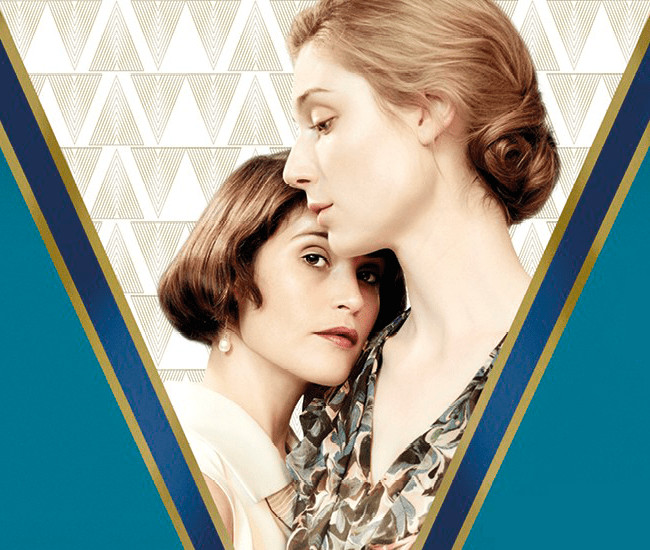Hot, hot, hot. A new film brings the legendary love affair between early feminist writers Virginia Woolf and Vita Sackville-West to libidinous life, opening in the U.S. August 23.
Elizabeth Debicki (“Guardians of the Galaxy Vol. 2” and HBO’s “The Night Manager”), towering at 6 feet, 3 inches tall, rules as the famously introspective Virginia Woolf. Sharing the throne is Gemma Arterton (“Clash of the Titans,” “Prince of Persia: The Sands of Time,” and “Quantum of Solace” as Bond Girl Strawberry Fields) as Vita Sackville-West. Isabella Rossellini plays her disapproving baroness mother.
It’s the second feature film from director/co-writer Chanya Button, who studied drama and literature at Oxford University. The movie “tries to make the past modern,” wrote reviewer Katie Goh last year in “Sight & Sound,” the international U.K. film magazine. Colors and costumes are vivid, music is thumping and the story of the two lovers is told in a “stylish, glossy fashion.”
Based on BAFTA and Emmy Award-winner Dame Eileen Atkin’s book and play of the same name, the movie is rich with lines from novels, diaries and love letters and takes on more than forbidden sex. This was, after all, the 1920s, when women’s aspirations to art were discouraged. Woolf and Sackville-West were pioneers in that outlawed territory.
As the character Charles Tansley states in Woolf’s 1927 novel, To the Lighthouse, “Women can’t write, women can’t paint.” As literary scholar Julia Briggs wrote in her introduction to the novel’s Everyman’s Library edition, the “remark may carry the further implication that women should confine their activities to providing support for men; their autonomous creativity is against the natural law and threatens the proper ordering of things.”
Before Woolf and Sackville-West met in 1922, they belonged to rarefied, separate circles. Middle-class Woolf and husband Leonard Woolf had founded Hogarth Press, which published her novels as well as T.S. Eliot’s The Wasteland. The couple was also part of the Bloomsbury Group, a bohemian association of writers, philosophers and artists.
Aristocratic Sackville-West grew up in one of England’s largest houses (Knole covers 4 acres in Kent), the daughter of a baron. She married a diplomat who later was knighted. She had a long history of love affairs with both men and women, often disappearing with them for months at a time.
Virginia took note of Vita’s unconventionality. Vita loved Virginia’s genius.
They sparked creativity in each other, and each produced their best work during their relationship between 1925 and 1935. Woolf explored new narrative chronologies and perspectives in Mrs. Dalloway and To the Lighthouse.
Sackville-West wrote bestsellers (The Edwardians; All Passion Spent) and became the inspiration for Woolf’s most popular novel, Orlando: A Biography, with an androgynous protagonist who changes from male to female while living for centuries. (Tilda Swinton was mesmerizing as Orlando in director Sally Potter’s 1992 film adaptation, and recently curated a photo exhibit based on the book. Also noteworthy in the film: Quenten Crisp as Queen Elizabeth.)
See “Vita and Virginia” for its acting, its words and its frissons. Or catch it on VOD streaming services starting August 30.




